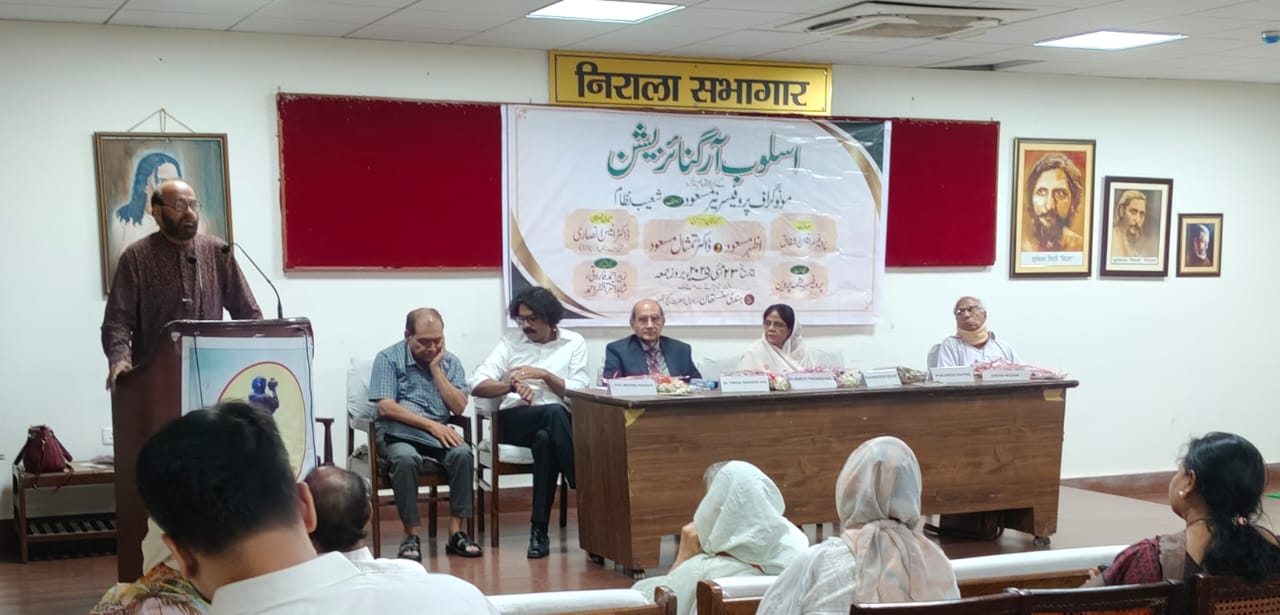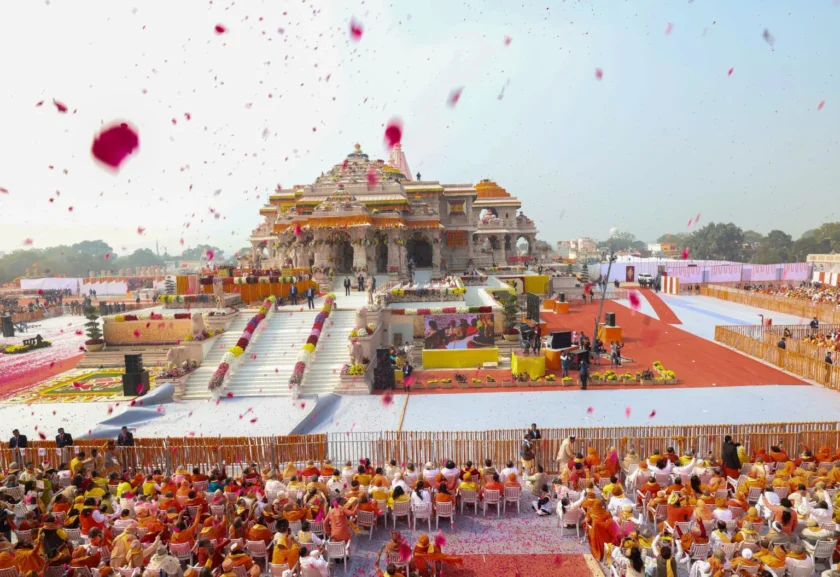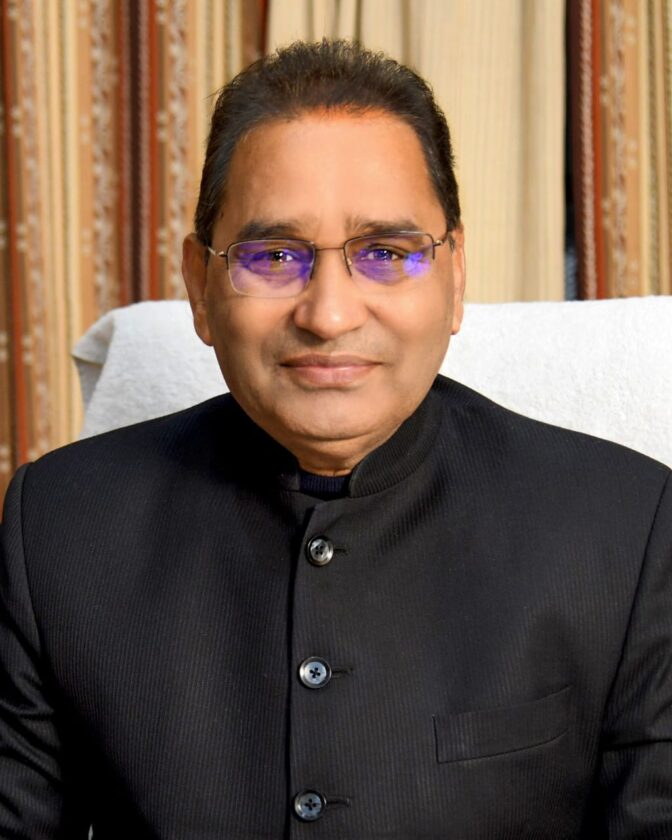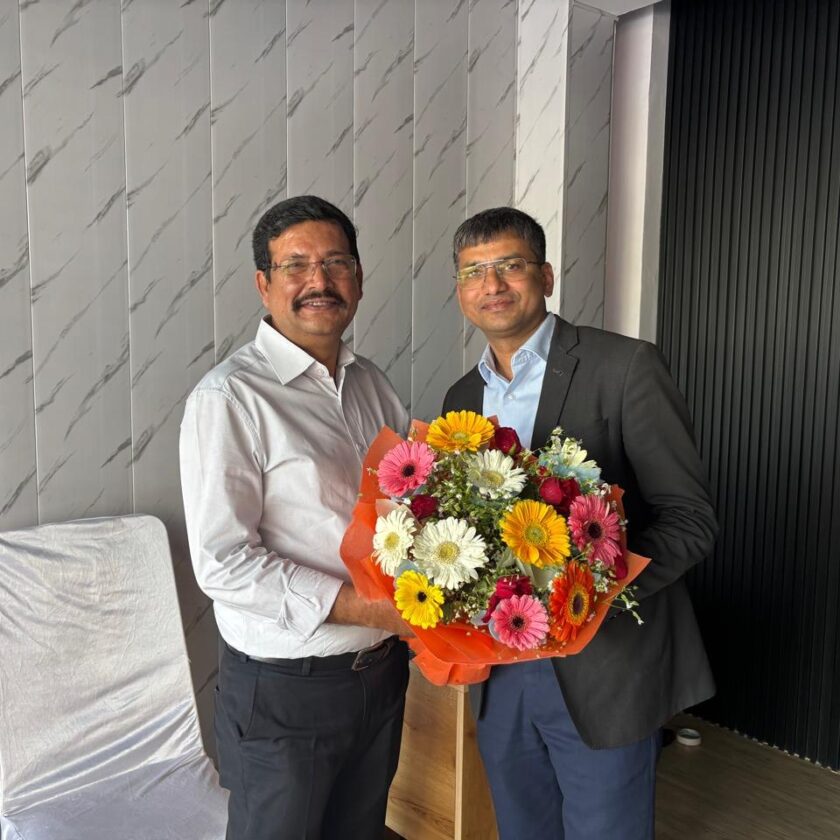“Not Just Stories, but Testimonies of Real Life” — Scholars Reflect on Urdu Legend’s Profound Influence
Lucknow– Celebrated Urdu author Prof. Naiyyar Masood’s literary genius and deeply sensitive portrayal of human emotions were the focus of a thought-provoking symposium held at Nirala Sabhagar, Uttar Pradesh Hindi Sansthan. The event, organised by the Usloob Organisation, also witnessed the release of a monograph on Prof. Masood authored by Kanpur-based Urdu scholar, Shueb Nizam, and published by the Sahitya Akademi, New Delhi.
Presiding over the discussion, former civil servant Dr. Anees Ansari underlined the importance of promoting Hindi and Urdu languages together. He reminisced his personal interactions with Prof. Masood, stating, “His stories were not merely fictional narratives but vivid reflections of everyday emotions and realities. The monograph captures his persona and creative depth with remarkable insight.”
Former Head of the Urdu Department at Lucknow University, Dr. Anees Ashfaq, in his presidential address, described Prof. Masood as a writer of immense emotional sensitivity. “His debut story sent ripples through the Urdu literary world for its freshness. He had an exceptional command over language, shaping it precisely according to the theme at hand.”
The symposium began with an introductory address by Shueb Nizam, who described Prof. Masood as a rare confluence of Urdu and Persian scholarship. “His stories stand apart in tone and texture — almost dreamlike. Though we sense familiarity with his characters and settings, we struggle to recall where we might have encountered them. Most of his stories end abruptly, yet his storytelling is so compelling that one cannot leave it midway. Perhaps that is the essence of life itself — uncertain beginnings and unforeseen ends,” Nizam reflected.
Dr. Timsal Masood, the late writer’s son, was present as a special guest. Renowned Urdu critic Shakeel Siddiqui emphasized Masood’s masterful portrayal of Old Lucknow, stating, “He was a pioneer of postmodernist thought in Urdu literature and captured the spirit of a fading era with unmatched nuance.”

Prof. Parveen Shujaat highlighted Masood’s contribution through four celebrated short story collections, noting the freshness and discomfort his narratives evoke. “His short stories bring alive the bygone days of Lucknow with stunning clarity,” she said.
Dr. Haroon Rashid shared his personal experiences with Prof. Masood while discussing the latter’s book Afsane Ki Talash (In Search of Stories). Prof. Bushra, who translated Masood’s stories into Hindi, praised his ability to chronicle a dying culture with poignant beauty.
Other scholars, including Shahid Akhtar, Prof. Sabiha Fatima, Samina Khan, Rizwana Parveen, and Mohsin Kidwai, offered insights into Masood’s seminal works such as Murasila, Waqfa, Taoos Chaman Ki Myna, Ganjifa, Sasaane Anjum, Sheesha Ghaat, Pak Naamoon Wala Pathar, and Baai Ke Maatamdaar Ke Sang Allam Aur Beta. These stories, they noted, showcase his unparalleled ability to explore the intricacies of human relationships and cultural ethos.
The event celebrated not just the legacy of a literary stalwart but also renewed focus on the importance of Urdu literature in contemporary times — a tradition that Prof. Naiyyar Masood so elegantly upheld.









